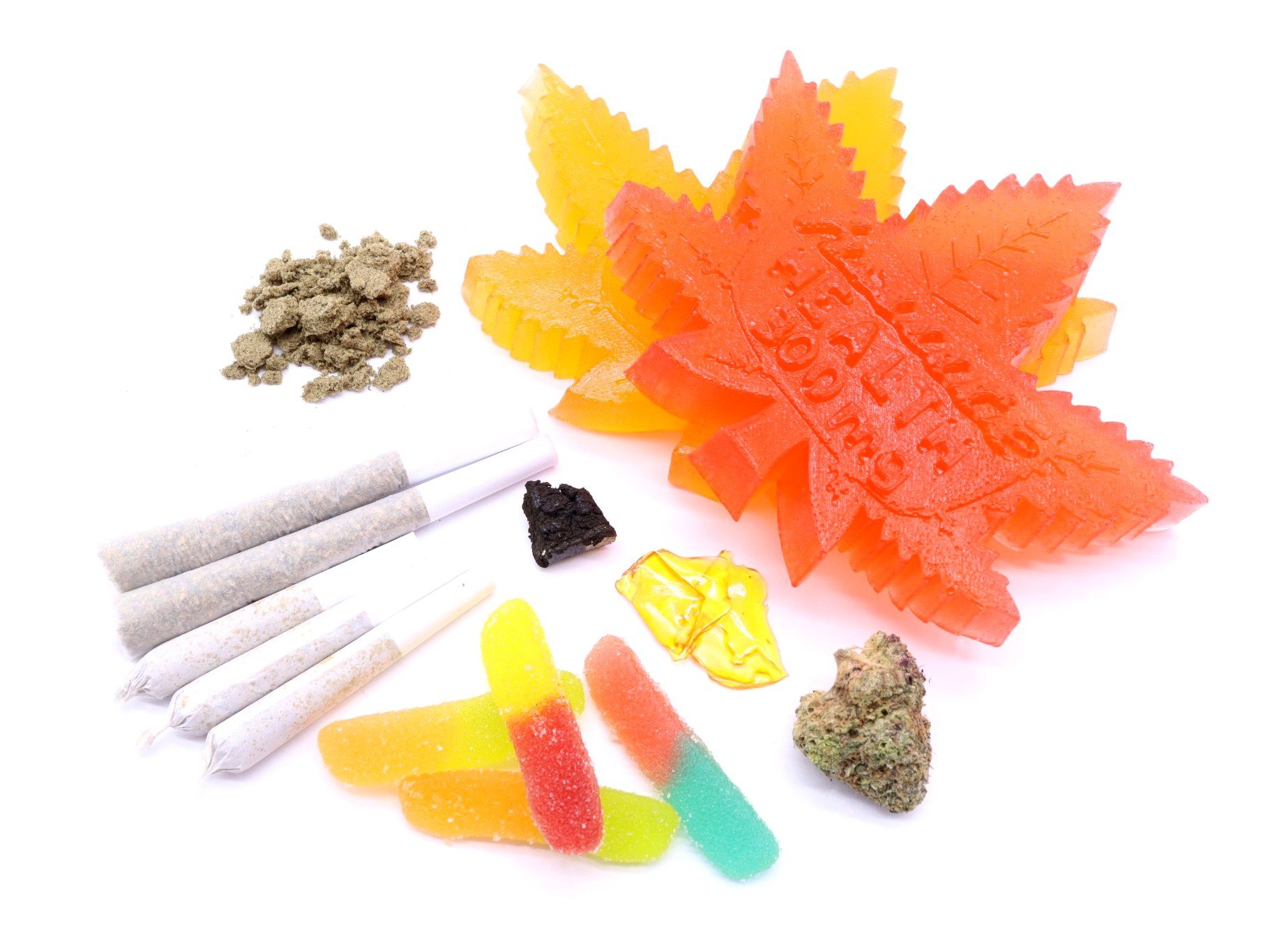Anyone who has forced themselves to stop drinking coffee or quit smoking knows that consistency and perseverance are critical to achieving their goals. Quitting any habit can require a lot of time, effort, or even therapy – especially if it’s something that enhances your day-to-day in some way.
Can you think of anything that can help you cope with stress, can boost your creativity or energy levels, make your days/nights more fun and can even help you to overcome injuries & illnesses? Cannabis isn’t just a hobby for many people – it’s a lifestyle. Quitting weed anxiety is something that you hopefully don’t ever have to experience. Unless it’s an extreme case, you shouldn’t have to quit cannabis. Instead of outright quitting, most of us just change our cannabis habits up to better suit our current situation. This might mean smoking less because we’re really feeling it in our lungs and eating more edibles or ingesting high-potency oils instead. There are thousands of ways to incorporate weed into your daily routine, for millions of reasons.
So, there’s no need to fall victim to quitting weed anxiety unless you’re expressly told by your doctor. Allergic reactions to certain chemicals common in cannabis processing have been known to force a person to reconsider their weed habits, as do some intolerances or unexplained reactions to cannabinoids. Quitting cannabis for a time is one thing, but what should you do when you have no weed and the weed withdrawal symptoms kick in? Weed withdrawal is no laughing matter – when it strikes, it can hit hard and really harsh your mellow.
What are weed withdrawal symptoms? What should you do to cope when you have no weed? How can you avoid the short- and long-term effect of quitting weed anxiety? Let’s commit to learning the signs of weed withdrawal and refuse to quit on this important guide to the dreary days when your stache is empty.
What Are Weed Withdrawal Symptoms?
Have you ever experienced withdrawal symptoms before? Quitting anything can be quite the endeavor that takes months, even years to fully overcome. Turning a new leaf on our daily habits – both healthy and unhealthy – can be equally difficult because of the nature of habitual behavior. Habits form over time not always out of necessity but often result from association with certain people or as reactions to certain stimuli.
Take for example smoking tobacco products; most smokers get started with friends or family. We might see others smoking, feel the urge to fit in and try it out for ourselves. Before we know it, it’s been a few years and we’re smoking nearly a pack a day! Caffeine reliance comes about in a similar fashion – we might be struggling to cope with low energy levels, and who/what is there to boost our tired brains & bodies?
Marijuana is unique to most habits because it might have negative connotations like with smoking, but in general cannabis has profoundly positive effects on your mental, physical and spiritual wellbeing. Even chronic smokers can benefit from the myriad effects that cannabinoids and terpenes have on your mind & body. The risks of smoking anything can’t be ignored, nor can the dangers of excessive vaping or even unhealthy ingredients that might be in some edibles. All that being said, cannabis as a whole can improve your health and help you to maintain a healthy balance if you manage your consumption properly.
What happens if you don’t maintain a healthy balance of cannabis in your life? Weed withdrawal symptoms vary from person-to-person because we all have unique weed habits in relation to our diverse cannabis needs. There are a range of symptoms that can occur from quitting weed, such as anxiety, lack of energy or insomnia. These are three of the most common, but what about other symptoms of weed withdrawal? When you have no weed or are taking a break from regular cannabinoid consumption, you might experience:
Lack of sleep, restlessness or insomnia
Anxiety, fear or nervousness
Depression, moodiness and sadness
Fluctuations in body temperature, profuse sweating
Lethargy, fatigue, weakness
Anhedonia or dysphoria
Nausea, cramping
Loss of appetite
These weed withdrawal symptoms affect everybody differently and often not all at once, except in extreme cases. Weed cravings aren’t the same as caffeine, alcohol or tobacco withdrawals because of how cannabinoids are processed/absorbed through our endocannabinoid systems. Opioids, alcohol, caffeine and nicotine are some of the most addictive substances on the planet and unfortunately millions of people have become reliant on them to get through every day.
Cannabinoids like THC or CBD do not influence you the same way. Sure, a puff in the morning can stave off pain or anxiety or CBD at night can help you to sleep consistently, but taking a break from these phytocompounds doesn’t trigger a severe craving response like it might with coffee, cigarettes or booze. If you’ve been absorbing cannabinoids for long periods of time (typically measured in years) then suddenly stopping will certainly influence your day-to-day moods & behavior. However, this is moreso in response to the shift in your quality of life – i.e. how rested, how focused, how energetic or how relaxed you feel.
This isn’t to say that weed withdrawal symptoms aren’t serious, because they can hit you hard and impact your mental & physical wellbeing. Nevertheless, cannabis withdrawals don’t represent an all-consuming need or biochemical reliance like with other substances. The myth that cannabis is addictive has been put to rest by numerous studies, yet this notion continues to be pushed by anti-cannabis pundits. The weed isn’t what we’re actually “addicted to” in most cases, it’s actually how the cannabis makes us feel (or helps us to not feel a certain way) that is highly sought after.
This is an important distinction to make when you’re coping with weed withdrawals. You CAN overcome cannabis withdrawal symptoms on your own without the need for medications or other substances – it’s all an exercise in mental strength.
How To Cope With Weed Withdrawal
Overcoming the symptoms of weed withdrawals isn’t easy for some, whereas many stoners frequently start-and-stop their cannabis habits whenever they feel like they’ve become too reliant. Whatever your levels of need for weed, you can cope with weed withdrawal symptoms without having to quit cannabis altogether. Sometimes a short break is all you need, or maybe switching up the kinds of marijuana products you prefer can lead to even better experiences with cannabis down the road.
If you’re struggling to change up your weed habits, or if you’ve tried to quit weed but your anxiety is through the roof, you might be experiencing a more severe form of weed withdrawal: cannabis withdrawal syndrome. CWS – cannabis withdrawal syndrome – occurs in stoners who typically have very high tolerances for cannabinoids and whose weed consumption is very frequent and in very high doses. Absorbing and consuming these high levels of THC, CBD or other active compounds changes your brain chemistry, so a sudden cessation of these phytocompounds can lead to more extreme symptoms of withdrawal.
CWS isn’t fatal or particularly dangerous to your health, but it can drastically alter your emotions, moods and behaviors. These mood swings or changes in energy can last for days or even weeks, but most cases don’t require much treatment beyond reintroducing cannabis into your system. This doesn’t mean that you should just light up a blunt when you’re feeling the itch for cannabis if you are suffering from withdrawals. We are, however, advocating that outright quitting cannabis isn’t necessary to manage CWS or lesser weed withdrawal symptoms.
One of the best methods for handling weed withdrawal is to switch up your cannabis habits. This might mean quitting smoking cannabis – which can be very difficult – or it could lead you to eat less edibles in favor of dosing cannabis oils. Simply changing the way in which you consume cannabis, how much weed you dose at a time, or reducing the frequency of your weed habits can help you to avoid many withdrawal symptoms.
A very popular method for controlling your weed habits has to do with cannabis journaling. Most of us don’t keep track of what kinds of weed we’re smoking, how much and what kinds of effects it has on us. Simply writing down your doses, the strains/products and how they affected us or made us feel can help you to get a handle on your weed habits. Cannabis journaling is easy, doesn’t require anything beyond a pen and notebook, and it’s a healthy exercise in managing your cannabis intake even if you aren’t experiencing problems with how much/how little weed you’re consuming.
Another popular method of preventing cannabis withdrawals from taking over is linked to everybody’s favorite awkward short guy from Seinfeld. No, not the postal foodie Newman, we’re talking about the incomparable George Costanza. Remember the episode when George realized that “everything he’s ever done has led to failure… so the opposite of every instinct he’s ever had would therefore have to lead to success!”. This is how Co-stan-za can help you to deal with an overabundance of weed or a lack thereof.
Are you an avid THC toker? Then it’s time to flip your weed habits on their head and start taking high CBD oil. Do you rely on CBD gummies for sleep every night? Not anymore, because it’s time to switch to a full-spectrum oral spray that has some THC, CBG, CBN and THCV to lull you into dreamland. Cannabis has so much to offer us in the way of unique compounds, so mixing it up and doing the opposite of what you’re used to can lead to some surprisingly positive results. You might even realize that your reliance on THC or CBD has become a bit unhealthy when you commit to this “do the opposite” strategy. Change is usually a good thing, especially when you get to initiate it yourself as a proactive approach to managing your cannabis habits.
What To Do When You Have No Weed
This is an easy question to answer: what should you do when you have no weed? Buy more! Haute Health has everything you could ever need to satiate your cannabis cravings and more. With an expansive inventory of all the hottest strains, latest & greatest edibles or concentrates, Hautehealth.shop is undoubtedly one of the best online dispensaries in Canada. Haute Health is obsessed with providing the best quality weed products for the best possible prices.
Even if you’re a pro grower and make some fine buds of your own, it’s fun to experiment and try lots of different cannabis types. If you’ve been considering taking a break from cannabis because of an over-reliance or it’s just not making you feel the same as it used to, maybe instead of quitting cannabis you just need to switch up your source? Smoke or vape less and drop more edibles or rub some weed topicals on your skin.
There are endless combinations and incredible varieties of cannabis products at Hautehealth.shop. Find your next favorite kind of cannabis at Haute Health, and get the most out of your weed for a happy, healthy life.


